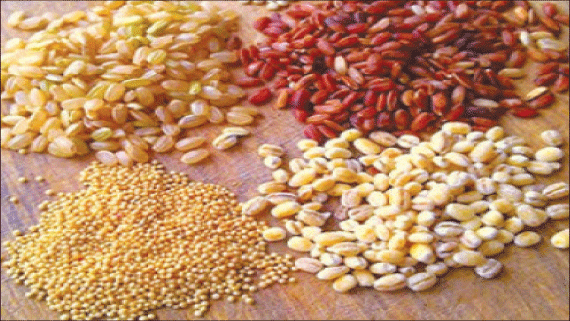
THE GOVERNMENT through the Agricultural Marketing Authority (AMA) has floated $55 million bills to raise money to fund the purchase of close to 250 000 metric tonnes of grain for the 2013 to 2014 marketing season.
Nqobile Bhebhe Chief Reporter
The bill issue is being handled by CBZ Bank, the largest bank by deposits. In a statement yesterday, AMA said the bills have a tenure of 360 days and had an interest rate of 10,5% per annum.
AMA is a statutory body that regulates the production, buying and processing of agricultural products.
“The Agricultural Marketing Authority intends to issue bills to finance the purchase of grain for the 2013 to 2014 marketing season.
“CBZ Bank hereby invites investors including, but not limited to, pension and provident funds, insurance companies, life mutual, commercial banks and other interested institutions as well as individuals in Zimbabwe to subscribe for AMA bills,” it said in a statement. The offers open today. Special features include prescribed asset status.
Liquid asset status and exemption from tax and applications must be for a minimum of $50 000 in multiples of $10 000.
Appearing before a parliamentary portfolio committee on Lands, Agriculture and Irrigation Development in March, AMA chief executive officer Rocky Mutenha said the $55 million would be used to purchase about 200 000 metric tonnes at last year’s market price of $380 per tonne.
- Chamisa under fire over US$120K donation
- Mavhunga puts DeMbare into Chibuku quarterfinals
- Pension funds bet on Cabora Bassa oilfields
- Councils defy govt fire tender directive
Keep Reading
Zimbabwe requires between 1,8 million and two million metric tonnes of maize annually to meet human and livestock requirements.
In April, AMA established a grain producer registry that formalises and traces links between maize and wheat commercial farmers to international buyers.
The database would act as a guideline for the creation of grain produce markets for farmers who previously failed to access them.
The idea to establish a producer registry was borrowed from the Tobacco Industry and Marketing Board, which acts as a conduit for farmers and buyers of the crop annually.










